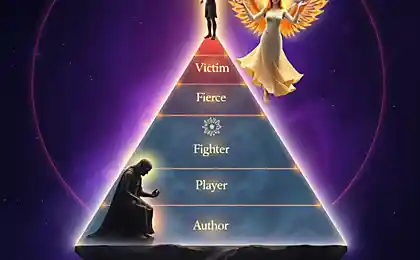234
Relationships: How to Get Out of Obsessive Scenarios

Severe or even tragic childhood events, such as the divorce of a parent or the loss of one of their parents, can have a profound impact on shaping our life scenarios. These scenarios become patterns of behavior that we unconsciously transfer into adult relationships, often repeating the same patterns. How do you get out of this vicious circle and build healthy, harmonious relationships?
What are compulsive scripts?
Obsessive scenarios are persistent patterns of behavior and thinking formed as a result of early life events. They affect how we interact with partners, how we build trust, and how we deal with conflict. These scenarios may manifest as a fear of rejection, a need to continually affirm one’s worth, or a tendency to avoid behavior.
“Understanding your obsessive scenarios is the first step to overcoming them and building healthy relationships.” – Dr. Elena Smirnova, Psychologist
Reasons for Forming Obsessive Scenarios
The formation of obsessive scenarios is associated with experiences and experiences that affect our emotional and psychological state:
- Divorce of parents: Instability and changes in family structure can cause fear of breakups and loss.
- Loss of one parent: The deep trauma of loss can lead to problems with trust and attachment.
- Emotional or physical abuse: Negative interactions in childhood can cause low self-esteem and fear of intimacy.
- Excessive criticism or depreciation: This can lead to a constant quest to prove your worth.
How do obsessive scenarios affect adult relationships?
Obsessive scenarios can manifest in various aspects of a relationship:
- Communication: Problems with openly expressing feelings and needs.
- Trust: Difficulty trusting your partner and fear of being injured
- Conflicts: Inability to resolve conflicts constructively, leading to recurrence.
- Attachment: Avoiding or overly dependent attachment patterns
Steps to Overcoming Obsessive Scenarios:
- Awareness: Recognize the presence of intrusive scenarios and understand their origin.
- Introspection: Research your own feelings and reactions in different situations.
- Request for Assistance: Working with a therapist to work through trauma and change behavior patterns.
- Mindfulness practice: Using Mindfulness techniques to manage emotions and reactions.
- The development of emotional intelligence: Ability to recognize and manage your partner’s emotions.
Methods to Change Obsessive Scenarios
There are several effective methods that help to get out of the vicious circle of obsessive scenarios:
- Cognitive Behavioral Therapy (CBT): Helps identify and change negative thoughts and behavioral patterns.
- Emotional-focused therapy: Improves emotional connection and trust between partners.
- Attachment therapy: It helps to understand attachment patterns and learn to build healthy relationships.
- Group therapy: Provides support and opportunities to share experiences with others facing similar challenges.
Role of the Partner in the Change Process
Partner support plays an important role in the process of changing obsessive scenarios. It is important that your partner is patient, understands your difficulties and is willing to work on the relationship with you. Mutual understanding and support can greatly accelerate the healing process and help build strong, healthy relationships.
“A healthy relationship requires effort and mutual support. Partners should be ready to work on themselves and overcome difficulties together — Dr. Sergey Ivanov, psychotherapist.
Success stories
Many people have successfully coped with obsessive scenarios and built strong, happy relationships. Here are some inspirational stories:
- Elena, 34: “After several years of therapy, I was able to recognize and change my behavior patterns. I have a healthy and harmonious relationship with my partner. ?
- Alexey, 40: “Working with a therapist helped me overcome my fears and build a relationship of trust. My wife and I are closer and understand each other.
- Maria, 29 years old: The process of self-development and the support of a partner helped me to get rid of negative scenarios and start a new, happy life.
Conclusion
Getting out of obsessive scenarios is a complex but possible process that requires awareness, patience and professional support. Being aware of your behavior patterns and working to change them will help you build healthy and harmonious relationships. Remember that you are not alone in this journey, and it is always possible to seek the help of professionals to help you along the way to personal growth and happiness.
“Every step towards changing obsessive scenarios is a step towards freedom and happiness. Do not be afraid to seek help and believe in yourself. – Marina Kovaleva, psychologist
Start your journey to a healthy relationship today and you’ll see how changes in your life bring harmony and fulfillment.
Healing after years: The Truth About Forgiveness for an Unloving Mother
Why a man left a relationship for no reason and then came back























